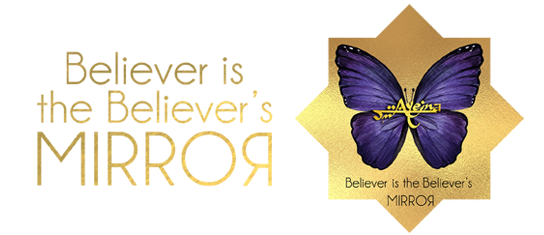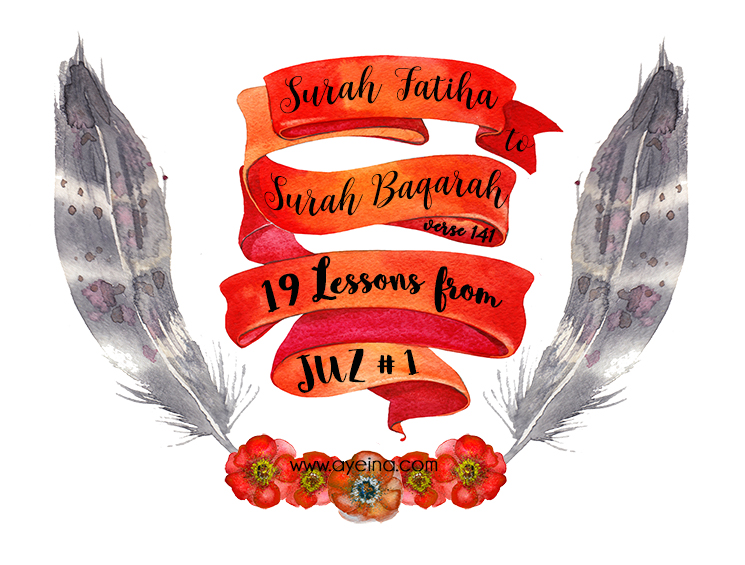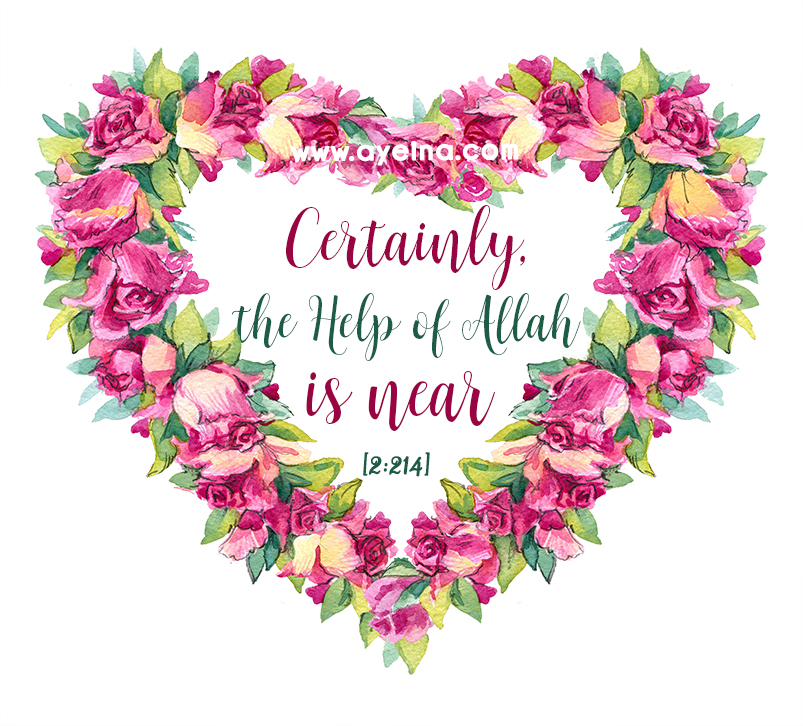ومن سلك طريقًا يلتمس فيه علما سهل الله له به طريقًا إلى الجنة
The Messenger of Allah (ﷺ) said, “Allah makes the way to Jannah easy for him who treads the path in search of knowledge.” [Muslim].
If you’ve been following our Quranic reflections series, you’d know that we are posting weekly reflections of the Qur’an, one baby step at a time. In shaa Allah, we’ll be doing a collective reflection-lesson after each completed Juz/Para.
For word to word translation, here’s the PDF version of first Para of the Qur’an المٓ and here’s the collection of audio lessons.
So far, following are the lessons we’ve learned from Juz 1 so far:
1: Importance of knowledge & application:
The Qur’an (first juz) starts with a dua – a refuge from being in a category of الضَّالِّينَ (those who are lost and astray) or maghdoobi alaeehim الْمَغْضُوبِ عَلَيْهِمْ (those who have evoked Allaah’s anger – which is even worse) but rather seeking to join the ranks of أَنْعَمْتَ عَلَيْهِمْ (those upon whom Allah bestowed favor – an’amta alaeehim). Those who were blessed by Allaah because of their knowledge of deen and application of that knowledge in life.
2: Believing the unseen:
O Allah! Though I can’t see You yet I believe in You as if I can look at You with eyes of my heart! When everything (including myself) feels absolutely cold, I feel the warmth of Your mercy. I find You alert whenever I find myself drifting off the track. I believe in Your creation that’s hidden from my sight and Your books I never read, Your prophets I never met and the day of recompense that is yet to come…
I long to see and reside in the abode that You created for us with all the love. I long for Your single glimpse with my eyes wide open when in shaa Allaah I’ll get the chance to meet my prophet and You in Jannah.
3: How to unlock a sealed heart
By doing more good deeds and making lots of dua, one can shed off the darkness that engulfed the heart as this hadith describes the process of how a heart is sealed gradually…
Messenger of Allah (ﷺ) said:“When the believer commits sin, a black spot appears on his heart. If he repents and gives up that sin and seeks forgiveness, his heart will be polished. But if (the sin) increases, (the black spot) increases. That is the Ran that Allah mentions in His Book: “Nay! But on their hearts is the Ran (covering of sins and evil deeds) which they used to earn.” [Ibn Majah]
4: Remedy of hypocrisy
Cure is achieved in two ways: Preventive treatment (by staying away from lying, dishonesty, quarreling and breach of promises (according to a hadith mentioned in the lesson)) or Curative treatment (by repenting and making dua).
5: Self-progression
By efforts of removing hypocrisy from our lifestyle and not confirming to double standards. In short, acting upon what we preach/teach – either to kids or to adults.
6: Sweetness of eemaan
In this lesson, we explored the story of a famous poet – Tufail bin Amr (RA) who tasted the sweetness of eemaan after opening his heart for truth and being confident of what he achieved after realizing his mistake of believing the propaganda of Quraish. It shows how we have perfect abilities to recognize the truth and benefit from the reminders.
7: Guidance is for the seeker
The words of Creator have been the same all along, but the effects on creation have been entirely individual. What makes some see so much beauty in what others see ugliness? I think the answer lies in our hearts. A pure heart breathes pure life. Pure words. It sees the blooming rose instead of thorns. It highlights a growing flower beside a volcano. It wants to see beauty and hence it is visible. Beauty of guidance is truly for the seeker.
8: Purpose of brain
Allah could’ve given us brains like that of animals – who can function in the world normally too. They survive fine by eating, sleeping and playing. But we were created with a higher purpose hence higher strengths. And eventually, a higher number of tests. Previously, we saw how a change of heart can yield different results in different individuals. Same goes with the brain, soul, body, time, free will…we all have all of these but how we use it makes a huge difference.
9: Applying what we preach
أَتَأْمُرُونَ النَّاسَ بِالْبِرِّ وَتَنْسَوْنَ أَنفُسَكُمْ – Do you order righteousness of the people and forget yourselves…? – We as parents and sometimes as elders who have more knowledge, command kids/younger siblings etc. over righteousness and yet, fail to apply it in our daily lives.
The most common example being – LIES!
“NEVER LIE” we order. “BE NICE to your little ones”. “No screen time”. “DON’T CONSUME cold drinks and junk etc.” The list of double standards stack up in no time. So ordering righteousness is not simply limited to something praying/fasting-related only. It has a wider meaning – teaching with your actions as well and not just empty words.
10: Allah is most forgiving
Allah is the Most Forgiving. Even when we choose to not listen, not obey. Allah pardons so we become grateful at least…
11: Intercession is ONLY with the permission of Allah
It doesn’t work like this – Do as you like, disobey Allah, and then ask those who are closest to Him to make du’a, expecting to get all the wishes fulfilled on behalf of someone else’s good deeds. None can save you except Allah and your own good deeds simply make your path to salvation easy.
12: Following the commandments as they are – فافعلوا ما تؤمرون
The Messenger of Allah (ﷺ) delivered a Khutbah and said, “…when I order you to do something, do it as far as you can; and when I forbid you from doing anything, eschew it.” [Muslim]
13: Softening the hearts
We learned in this lesson how one can soften the heart – through constant remembrance of Allah, good deeds (like being merciful to the orphans and patting their heads) and staying away from talking excessively etc.
14: Ihsaan is Ahsan (Ihsaan is better)
Allah demands Ihsan from us, especifically for our parents, close relatives, orphans and the needy. Then everyone in general – “…And speak to people good …” – وَقُولُواْ لِلنَّاسِ حُسْناً
15: Regular repentance
Set a rule to make Astaghfaar your habit… Allah loves a consistent deed – be it small.
16: Importance of gratitude
When you see someone and feel that your life is not enough, find a tiny little thing to be grateful for. Find positivity amidst negativity and you will see abundance in your life. If you need to make gratitude an informed daily choice in your life, you can start by keeping a gratitude journal/Alhamdulillah journal.
17: Belief in destiny
“…Strive for that which will benefit you, seek the help of Allah, and do not feel helpless. If anything befalls you, do not say, “if only I had done such and such” rather say “Qaddara Allahu wa ma sha’a fa’ala (قَدَّرَ اللَّهُ وَمَا شَاءَ فَعَلَ – Allah has decreed and whatever he wills, He does).” For (saying) ‘If’ opens (the door) to the deeds of Satan.” [Ibn Majah]“…Be mindful of Allah, and you will find Him in front of you. Recognize and acknowledge Allah in times of ease and prosperity, and He will remember you in times of adversity. And know that what has passed you by was not going to befall you, and what has befallen you was not going to pass you by. And know that victory comes with patience, relief with affliction, and hardship with ease…”[Tirmidhi]
18: Complete submission to Allah
إِذ قالَ لَهُ رَبُّهُ أَسلِم ۖ قالَ أَسلَمتُ لِرَبِّ العالَمينَ – No commandment or trial was hard enough to weaken Ibrahim (AS)’s faith in Allah. He obeyed his Rabb without questioning or complaining, due to which he was given the title of خليل الله (Friend of Allah).
19: Manifestation of religion inside out
“the sibghah of Allah” – Ibn ‘Abbaas said in the narration of al-Kalbi, as did Qataadah and al-Hasan: the deen (religion) of Allah, and it is only called sibghah because the effects of the religion manifestly appear on one who adheres to the religion just as the effects of the dyes manifestly appear on the clothing.
———————————————————————————–
What did you learn from your revision of the 1/30th part of the Qur’an? If you want to revise your Qur’an or start understanding it with tafseer with us, please subscribe to stay updated with Qur’anic Reflections. And start from HERE, if you’re new. BaarakAllahu lakum!
———————————————————————————–







This was so beautiful to read and spiritually uplifting. I Feel like as a mother I have been lost spiritually and in need or guidance to get back on track with my relationship with Allah. Points 8, 13, 16 hit home for me and I am going to look into downloading or buy a hard cover of that gratitude book InshAllah. You have a great project going here MashAllah. I can see that alot of work goes into this but I Was wondering if you could do an audio version too? It may help people with short attention spans like me. I felt it was a little bit of a really long read for me…Just wanted to give you my honest opinion <3
Beautiful reminders! I love the lesson about the purpose of the brain and how our higher level of intellect brings on more reconsibility as well as tests and challenges.
Masha Allah an excellent post!!
Great reminders about our life in this world for those who are really in need including myself. Though I dont give much time for tafseer these days I’m getting my weekly doses through you. Alhamdulillah
Masha Allah I love the reminders about practicing what we preach and believing in the Qadr of Allah.
Too many times we get caught up with life events that we accumulate info and knowledge without stopping to take a breadth and put into practice what we’ve learned.
And each day, I try to remind myself that Allah is in control and everything has been predestined; yet still call Him to grant my heart desires.
Masha Allah love the reminders about practicing what we preach and believing in the Qadr of Allah.
And of course, my favourite has got to be the point about the similitude of the manifestation of the Deen to that of dye on clothes. Allahu Akbar. May Allah keep us firm and steadfast.